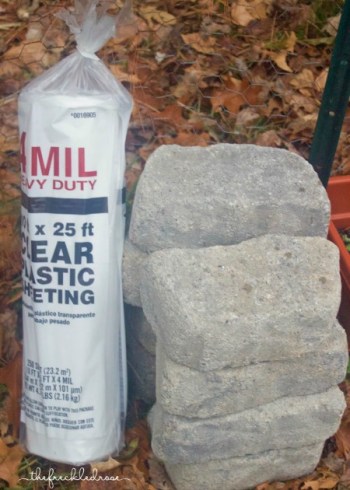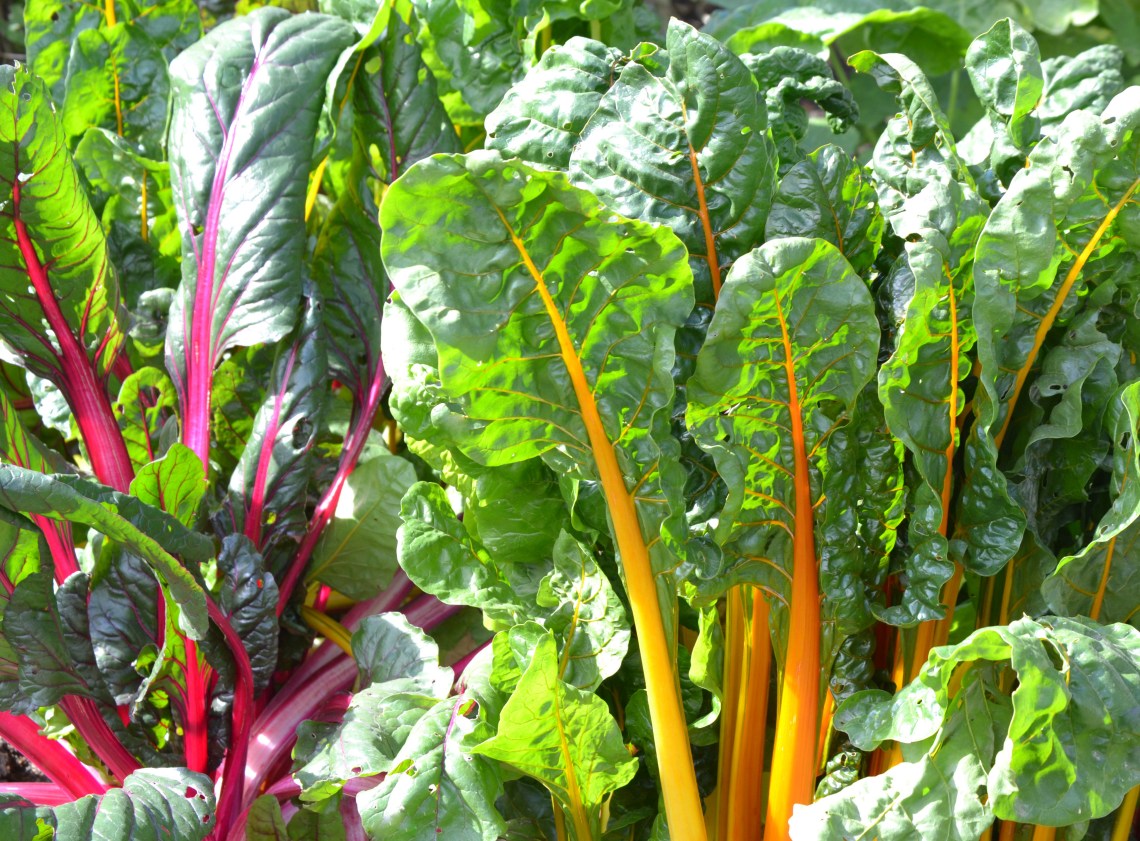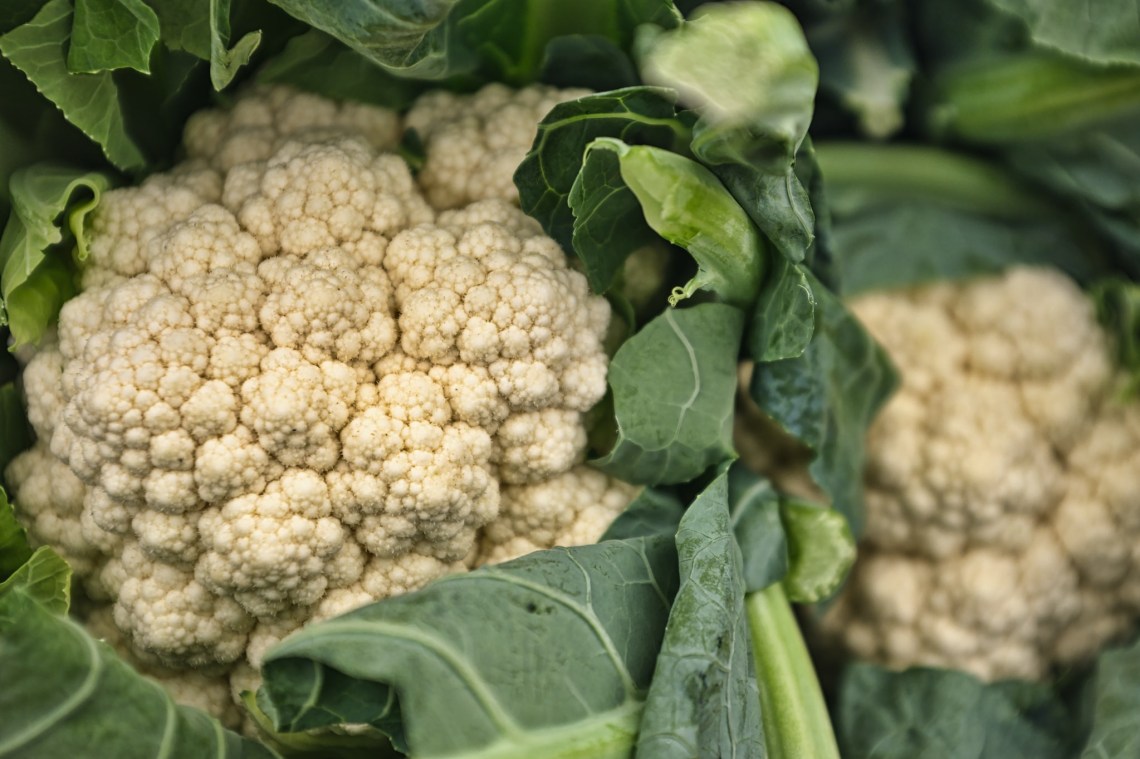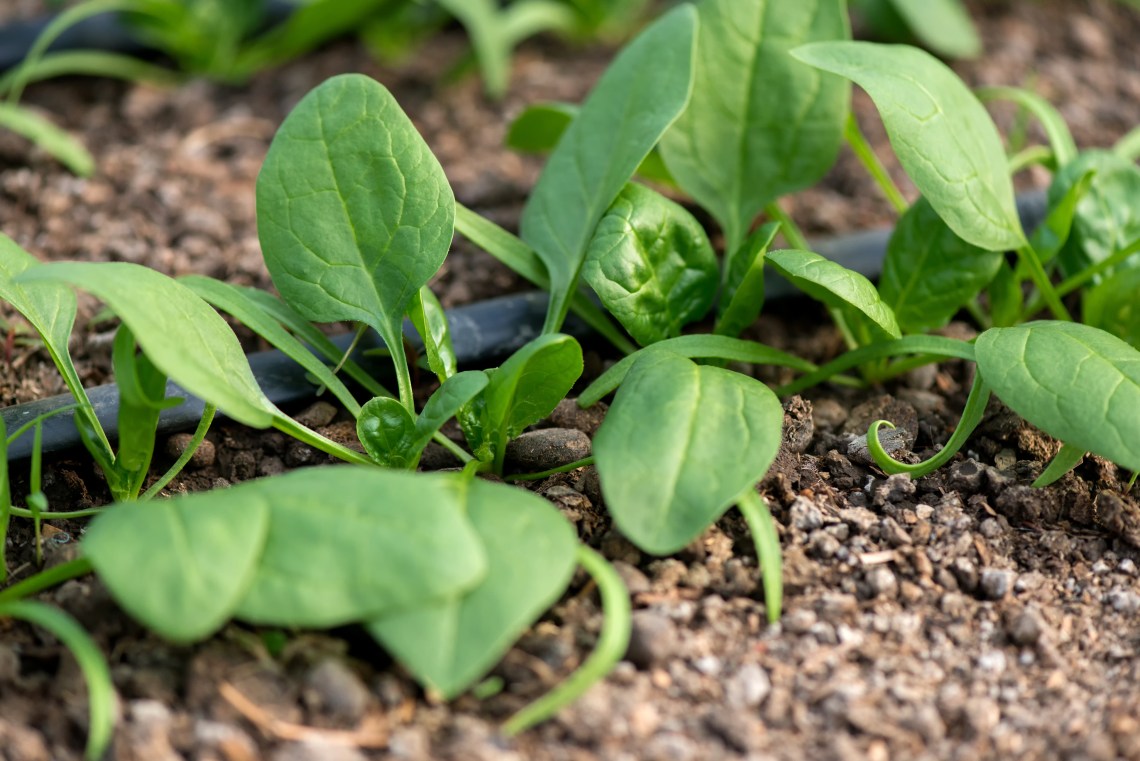
Here in zone 6a New England, the growing season is so short. By the end of November, trees have shed their leaves and plants have gone into hibernation mode. When the ground starts to freeze and the days become shorter, us gardeners turn to houseplants and planning next year's harvest.
Although that can be very enjoyable, I really wanted to try something new! I decided to try extending my growing season deep into the chilliest months. I grow vegetables and herbs during the summertime in a raised garden bed.

Adding a hoop house to this already built bed is rather inexpensive and relatively easy to maintain.
I spent some time doing research online and looking at some helpful books, and then dove right in! Although I am unsure at the moment of the amount of growing success I will have, I've decided to enjoy it and just give it a try.
This is the year for trial and error with a modest budget. If all I gain from this is knowledge, I will still be satisfied! Most of the materials and tools I used to build my winter garden can be found at East Coast Hardware.
Click here to buy supplies for your own winter garden

Building A Hoop House
My raised garden bed is 11 feet long and 5 feet wide. The hoop house consists of four 10 foot 1/2-inch PVC conduit. I purchased these at my local hardware store for $1.59 a piece.
PVC conduit is flexible and sturdy enough to prevent it from collapsing under the snow. Luckily, I did not have to cut or change the original size in any way. I then bent them into the position and shape I wanted. After adding the PVC conduit, I prepped my bed by adding new soil along with some fertilizer.

PVC Conduit Total Cost=$6.36

 When prepping my raised garden bed, I added some fresh new soil and some Happy Frog Fruit & Flower Fertilizer.
When prepping my raised garden bed, I added some fresh new soil and some Happy Frog Fruit & Flower Fertilizer.
This mix contains bat guano, bone meal, kelp meal and feather meal! I want to give my seeds the best chance to sprout into strong plants while fighting against colder conditions.
I'm hoping with extra care and nutrition, it will give them that extra push. The wonderful thing about fertilizer is one bag can last you up to an entire year! It lasts a long time when you have a small sized garden!
Fertilizer Cost=$12.50

 I covered my newly built hoop house and baby seedlings in my raised garden bed with 4 MIL 10ft x 25ft clear plastic. I purchased this at my local hardware store for $11.47.
I covered my newly built hoop house and baby seedlings in my raised garden bed with 4 MIL 10ft x 25ft clear plastic. I purchased this at my local hardware store for $11.47.
I did some adjusting and cutting to size so it fits snugly. I also purchased eight of these stone blocks for $2.28 a piece to hold it down and keep it from blowing away.
Nobody likes a rogue giant plastic tarp rolling through the neighborhood! I also have some duct tape on hand for any holes or rips that may occur during the harsh winter months. I may purchase an extra covering to have on hand.
Plastic Sheeting Cost=$11.47
Stone Block Total Cost=$18.24

Under The Hoop


Here is the winter garden bed with its new plastic covering. I will be closely monitoring the temps inside for the first week to see how warm it gets.
The weather really fluctuates here in New England. One day it's 30°F the next it's back up to 60°F. I'm using an outdoor thermometer to keep an eye on the temperature inside my hoop house.
Thermometer Cost=$5.98
I find the thermometer very helpful so far, and I am hoping my seeds sprout into vigorous, full grown plants.

So here is what it looks like on the inside of my winter garden hoop house. I planted many different greens, broccoli, cabbage, carrots, garlic, kale, leeks, onions, peas, radishes & turnips.

I found a great selection of cold tolerant vegetable seeds over at Baker Creek Heirloom Seed Company. It's also good that most of the vegetables I have chosen are shade tolerant. I know the sun isn't as prominent and strong during the winter months.

 Thanks to so many great suggestions from gardeners on Facebook and Twitter, I decided to add a floating garden blanket for extra protection. I purchased these Gardeneer by Dalen Harvest Guards 40 inch by 50 foot for $9.99 a piece.
Thanks to so many great suggestions from gardeners on Facebook and Twitter, I decided to add a floating garden blanket for extra protection. I purchased these Gardeneer by Dalen Harvest Guards 40 inch by 50 foot for $9.99 a piece.
I am only using one, but I purchased an extra to have on hand. These covers trap heat and moisture as well as protecting against frost. Since they are also good for keeping crops protected from insects and pests, I will be using these over my garden bed during the summer months as well. I can't wait to see if this extra layer of protection helps!
Garden Crop Cover Total=$19.98

Here are my seeds staying toasty under their new garden blanket! I have been monitoring my seeds growth, and now that I see some starting to sprout, I will be mulching in my bed this upcoming weekend. After I mulch it in with leaves from my yard, I will cover the mulching with the garden blanket again.

Total Winter Garden Cost=$64.54

Winter Crops
There are so many garden crops that grow well during the winter months. I took my time researching which vegetables thrive in the cold, and narrowed it down to a select group I was interested in.
Over on Plantsmap.com, I added a winter garden collection. Collections on Plantsmap allows you to keep track of the names of the plants you are growing, add photographs and also gives you a way to document and detail your growing experience.

If you wan't to see a full list of what I am growing, check out my collection here. These are some of the greens I have picked to grow in my vegetable garden.

Arugula is one of my favorite greens with a spicy flavor. Fordhook Giant Swiss Chard has large, crinkled leaves with ivory colored stems.

Amsterdam Prickly Seeded spinach is noted for being the hardiest of all the varieties. The sturdy plants have flat, tender leaves with red tinged stalks. All of these greens are known to do well in colder temperatures.

Above are more greens otherwise known as "other greens" I am growing in my winter garden. Morris Heading Collards have dark green leaves and is a variety that is slow to bolt.

Corn Salad produces flavorful, deep green leaves & is fairly cold-hardy. Miner's Lettuce has a spinach like texture with mild tasting leaves.

Learning & Growing
Building a winter garden has been a great learning experience for me. I've received so many helpful suggestions to make it even more successful! I am definitely going to be mulching it in to see if that helps trap in heat.
I also want add mulch to help with the moisture level. Since it can get really humid under the tarp, with less sun in the winter it is the perfect environment for mold to grow. I'm hoping to defend against that by not overwatering and also adding dry material to the soil.

I am going to be adding one more piece of PVC conduit across the top to add more support and to help prevent problems with the future piles of heavy snow. When it does snow, I will be going out regularly to clean off the top to prevent it from collapsing under the strain of the weight.
I have also heard that adding Christmas lights to the inside of the hoop house can prevent plants from freezing, so I may give that a try.
Right now I am reading The Year-Round Vegetable Gardener by Niki Jabbour. It is such a great book full of helpful content!
Garden friends have suggested I look into reading The Winter Harvest Handbook by Eliot Coleman, who just happens to be from New England as well! I'm hoping to purchase this soon for some helpful reading material.

Do you extend your outdoor growing season into the fall and winter months? What are some tips you have heard or have tried to ward off frost and a hard freeze? Please share with me in the comment section below.
Although I don't mind if Snow Miser brings us a white Christmas, I'm trying to prevent his friend Jack Frost from getting anywhere near my precious veggies. Check back soon to see update from my endeavors into the exciting world of winter gardening!

If you enjoyed reading this post, you might also like these:
• Vegetables to Plant in the Winter Garden






71 Comments
Jen
December 12, 2015 at 9:10 amWhat an informative post! I thought about a winter garden, but then the time got away from me. I recently picked up a book about gardening in the south, and over my Christmas break, my husband and I are going to be making some plans for the new year.
Thanks for sharing with us at Photo Friday!
chickenruby
December 12, 2015 at 4:34 amwinter is the only time to grow things from seed really in Dubai, temps are similar to a European summer so it’s still rather warm and it rarely rains here either. I’ll check out Plantsmap, to document my growing times
bettyl-NZ
December 10, 2015 at 5:38 pmYou’re certainly ready for winter gardening! Thanks for all the great tips and ideas.
Anne@GritandGiggles
December 10, 2015 at 5:47 amI love you garden blanket! We have put up shade for ours.
Villroses hage
December 9, 2015 at 2:04 pmIt will not freeze underneath?
I have an arrangement like this for my summer crop. During this cold “summer”, the vegetables had a great time under the fabric. Even basil leaves sprouted
Good luck!
Thefreckledrose
January 24, 2016 at 7:51 pmSo far, no freeze! I’m monitoring it though to see how it does 🙂 Awesome to hear it worked well for you & thank you!
JES
December 9, 2015 at 5:01 amAngie, looks like you have the perfect recipe for a wonderful winter garden. We have been planting in the autumn/winter for the last 4 years and I am still amazed at the best tasting cauliflower ever! I found you via Roses of Inspiration. Have a lovely week 🙂
JES @ Strangers & Pilgrims on Earth
Thefreckledrose
December 18, 2015 at 8:16 pmThank you Jes! I would love to see pictures! Always great to find fellow winter garden enthusiasts 🙂
Joanna @ Everyday Made Fresh
December 8, 2015 at 8:16 pmThank you for joining us this week at The Wednesday Showcase Party! This is a great plan! I’d love to do something like this. We live in Florida, and have a very long growing season, but by doing this I may be able to make it year round!
Thefreckledrose
December 18, 2015 at 8:15 pmDefinitely Joanna! It’s also a great plan for keeping garden critters at bay. I’m really enjoying it so far, it’s been doing really well! 🙂
Danica
December 8, 2015 at 6:16 pmVery interesting post. I am excited to see the end result and know more about winter harvesting:)
Thefreckledrose
December 18, 2015 at 8:12 pmThanks Danica! 🙂
Michelle Ramblingwoods
December 8, 2015 at 1:58 pmI will be interested to see how this goes..I also read the comment by Lucy.. Great information..Michelle
Thefreckledrose
December 18, 2015 at 8:12 pmThanks Michelle! It is going really well so far, already have plants starting to sprout 🙂 I will be updating soon!
Cindy
December 7, 2015 at 10:53 amSo inspiring! A winter garden would be wonderful…maybe one day!!!
Thanks so much for sharing at AMAZE ME MONDAY!
Blessings,
Cindy
Thefreckledrose
December 18, 2015 at 8:11 pmThank you Cindy!
Lea
December 7, 2015 at 7:35 amAn exciting experiment!
Happy Frog! I think I would buy it if it were available here.
Best of luck to you!
Lea
Thefreckledrose
December 18, 2015 at 8:10 pmThank you so much Lea!
jandi @ohmydearests
December 7, 2015 at 1:35 amwhat a wonderful post! we are experiencing summer now but i’ll store this away for future reference.
Thefreckledrose
December 18, 2015 at 8:08 pmGlad you enjoyed it Jandi! Enjoy the warm summer months 🙂
Gemma Wiseman
December 6, 2015 at 11:30 pmAn intriguing post. A wonderful step by step guide for growing veggies over the chilly months.
Thefreckledrose
December 18, 2015 at 8:06 pmThank you so much Gemma!
Lucy
December 6, 2015 at 4:57 amI have been growing in water for over 20 years. next year start your water garden in early august for things like carrots and kale and plant in mid to late Sept for faster crops like lettuce and arugula. Planting in November means you do not have soil warmth or, more importantly, daylight to get the plants growing quickly so that they have a good root system to carry them through winter.
For good growth you need at least 10 hours a day of light and in November we are getting under 8 hours so most plants are going dormant, even if there are warmish temperatures. There are some plants that do not care much about light. Lettuce and spinach are twi things that grow through winter, though very slowly. kale will as well.
Thefreckledrose
December 18, 2015 at 8:05 pmHi Lucy! Thank you for the great tips 🙂
Pamela
October 30, 2016 at 12:58 pmI heard long ago about filling 5 gallon containers full of manure so the heat it gives off as it composts heats the garden in a greenhouse. I suppose smaller containers under a cloch or hooped winter garden might do the same, and then of course the manure can be worked into beds or the compost pile in the spring.
Betsi OHara
December 5, 2015 at 8:45 pmVery interesting article. Can’t wait to see how it goes!
Thefreckledrose
December 18, 2015 at 8:01 pmThanks Betsi! So far so good! 🙂